Oil Cleansing Method: What Is It And Methods For Various Skin Conditions
You can do your skin a world of good by cleaning it with oil in the right way.
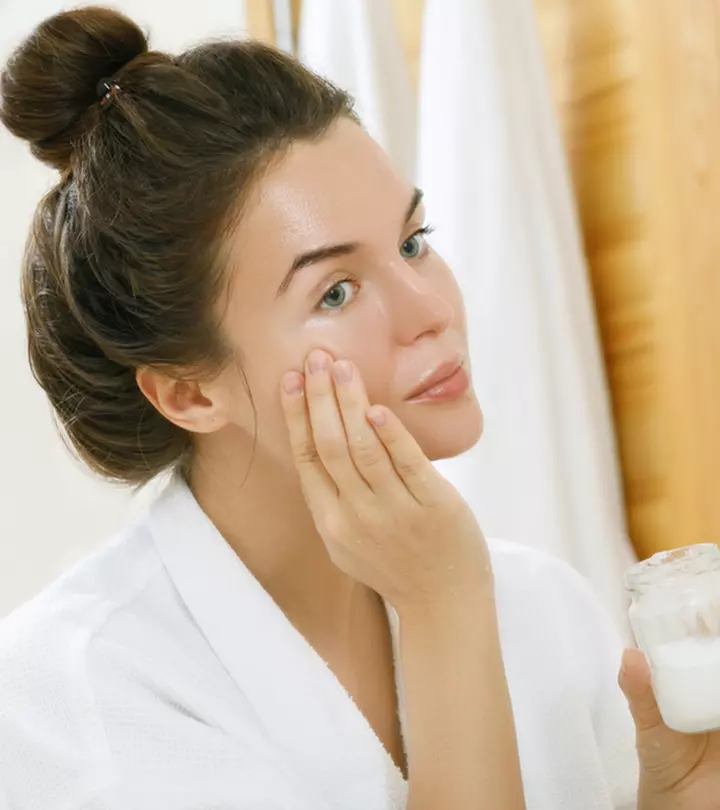
Image: ShutterStock
Many people are put off by the idea of applying a thick layer of oil to their skin. However, what if we told you that you can clean your skin using oil instead of soap? That is exactly what the oil facial cleansing method does. Here, we will teach you all you need to know about the oil cleansing method, from how to choose the proper oil to how to use different methods for different skin types. So, let’s get started!
In This Article
What Is The Oil Cleansing Method?
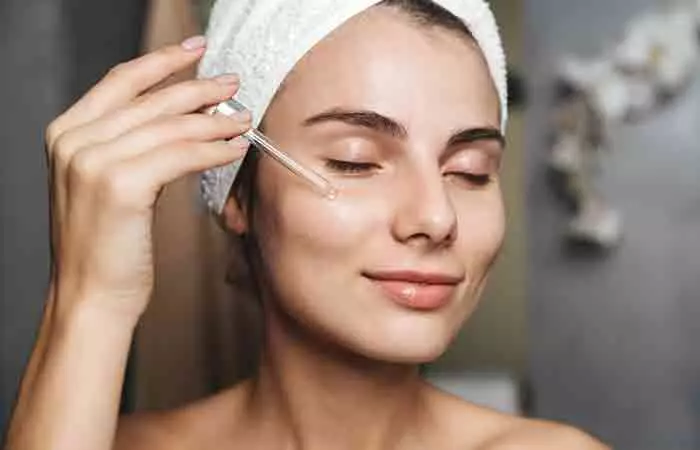
As the name indicates, the oil cleansing method involves the use of natural oils for gently cleansing the skin. This method does not involve the use of soaps and cleansers that can potentially strip the skin of its moisture or natural sebum and make it dry. This oil-cleansing skincare method relies on lubrication to reward you with radiant skin.
In this, essential oils diluted with appropriate carrier oils are used for a gentle facial massage. You can follow it with a double cleansing and moisturizing session with nourishing ingredients for added benefits.
A survey conducted on 10,100 adult participants between 18-65 found that 14.9% of them switched to using gentle facial cleansing methods for the skin and 5.3% used harsh methods to get rid of germs. That is why the facial oil cleansing method can be a gentle way of cleaning the skin without depriving it of its natural oil and moisture.
Beauty experts believe that using a blend of natural oils can help cleanse and nourish the skin and balance its natural oils. As a result, you are said to be blessed with supple, moisturized, nourished, and radiant skin.
 Fun Fact
Fun FactLet us now find out how oil cleansing works.
Key Takeaways
- The oil cleansing method involves using natural oils instead of soaps and cleansers for cleansing the skin.
- The oil used in this procedure dissolves impurities and eliminates them.
- You can prepare your own DIY oil cleanser by mixing one or more natural oils like olive, castor, coconut, or avocado oils.
How Does Oil Cleansing Work?
The oil cleansing method rests on the basic scientific principle like dissolves like. Oil is a non-polar solvent, while water is a polar solvent. As a result, water cannot dissolve oil and remove it from your skins surface.
On the other hand, non-polar solvents that have a similar composition as that of the natural oil on your skin can dissolve this surface oil along with any impurities that may have hardened with it. In the process, the oil eliminates any impurities that may be clogging your pores.
Additionally, the oil cleansing method also replaces the dirty oil with a fresh layer of plant-based oils that can impart nourishing properties to the skin. Thus, it may potentially help treat skin conditions such as skin sensitivity, acne, dryness, blackheads, whiteheads, and oiliness.
Paulina, a blogger, shared her experience with the oil cleansing method. She writes, “There were some love-hate moments, but so far, I didn’t find any better way to keep my skin well hydrated, less blemished, smooth, and balanced. My forehead still has some shine moments on a regular basis when not wearing makeup, but they are not followed by sebum waterfalls anymore (i).” She adds that though she had blotchiness, it has now been reduced by 50%.
Read on to find out which cleansing oils are the best for the oil cleansing method.
Cleansing Oil Suggestions For The Oil Cleansing Method
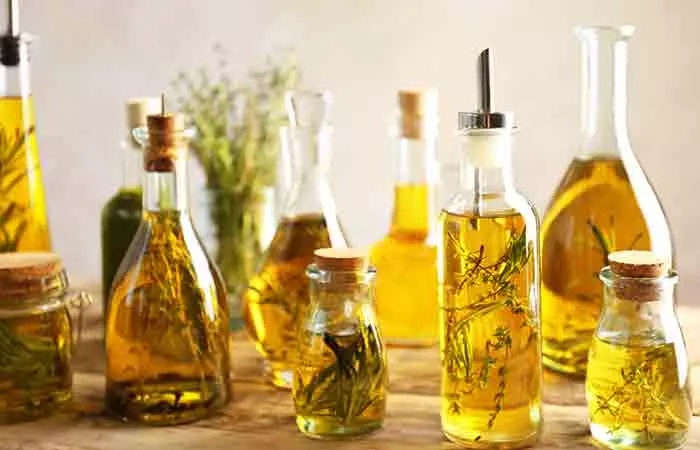
The oil cleansing method requires the right kind of oil. In some cases, you can even use a blend of oils. You may also come across beauty brands that offer oil cleansers.
All the chatter surrounding this technique may make you wonder about the best oils to use for the oil cleansing method. For starters, you can easily make your own DIY oil cleanser by mixing two or more natural oils to incorporate into your beauty routine. You may even apply a single oil to your skin.
The dissolution and removal of impurities depend on the various components of oil, which include:
- Triglyceridesi A type of naturally occurring fat commonly found in foods and plant oils and functions as a source of energy.
- Fatty acids
- Phospholipidsi A type of fat in plant oils that help improve their stability by preventing the oxidation (rancidity) process.
- Phenolic compoundsi Molecules found in plants and oils with antioxidant and anti-inflammatory properties that help prevent cell damage.
- Antioxidants
The ratio of these elements may determine the effectiveness of the oil.
Most DIY oil cleanser recipes use a mix of olive oil and castor oil in a 1:1 ratio. Since olive oil has vitamins and antioxidants, it can enrich the skin with vital nutrients and also hydrate it (1). Castor oil, on the other hand, is said to impart antibacterial properties to the cleanser (1). However, the reported astringent action of castor oil can cause mild drying of the skin.
Ultimately, the perfect oil blend depends on your skin type and the skin condition that you wish to fix. Hence, you may have to experiment a bit.
Some of the best oils for the oil cleansing method are:
- Olive oil
- Castor oil
- Grapeseed oil
- Coconut oil
- Avocado oil
- Sweet almond oil
- Sesame oil
- Sunflower oil
- Argan oil
- Jojoba oil
- Apricot kernel oil
Be mindful of buying high-quality natural oils that are free of additives like fragrances, scents, and dyes. For best results, you should go for cold-pressed, virgin, or unrefined oils that are specifically formulated for skin care. Let’s now find out the benefits of oil cleansing in the next section.
Benefits Of Oil Cleansing

Oil cleansers offer deep cleansing, which may help regulate skin oil production, and maintain a natural balance without over-drying the skin.
- This cleansing method may help protect the skin’s natural barrier and help keep it hydrated.
- Cleansing oils are especially beneficial for dry and aged skin (2). Compared to foaming cleansers, they are gentle on the skin.
- Massaging oil into your skin during oil cleansing may improve blood circulation and help keep your skin healthy.
- Cleansing oils may be packed with antioxidants that may act against oxidative stress or environmental stressors and help slow down signs of aging.
The next section will take a look at how to do the oil cleansing method.
How To Perform Oil Cleansing
You Will Need:
- A natural oil depending on your skin type (more on this later)
- A soft washcloth
- Filtered water
Here is how to do the oil cleansing method:
- Boil some filtered water in a container and dunk the washcloth in it. After a few seconds of sterilization, fish it out of the container and wring it to get rid of every last drop of water.
- Place the steamed washcloth on your face and let it sit for about 20 seconds or so. The dampness will dislodge any dirt or oils sitting on the surface of your skin.
- Your skin must be dry before you do the oil cleansing method so wipe it dry.
- Apply a generous layer of the oil of your choice. Use your fingertips to massage your skin in a circular motion. Do this for at least 1 to 2 minutes.
- Place another steamed washcloth on your face and leave it on for a minute or two.
- Use the washcloth to wipe away the excess oil. Be careful not to scrub your skin as it can cause breakouts. If your skin still feels too oily, you can rinse it with some warm water.
- Gently pat your skin with your fingertips. Apply moisturizer.
The above method is the basic way to do the oil cleansing method. You can also follow the one popularized by K-beauty trends. The double-oil cleansing method goes as below:
- Follow steps 1 to 4 of the basic oil cleansing method.
- Cleanse your skin with a mild facial cleanser that will not strip your skin of its freshly acquired hydration.
- Pat your face dry and apply a moisturizer.
The double-oil cleansing method is said to work best for oily and acne-prone skin. Those with sensitive skin must also go for the double-oil cleansing method. The cleanser ensures that you do not have to worry about the residual oil that may clog your pores.
Note that oil cleansing can work wonders for your skin, but doing it incorrectly may lead to less effective results or even skin issues. Here are some common mistakes you should avoid to make the most of your routine:
- Using oils that do not suit your skin type; for example, using heavy oils on oily skin can clog pores or cause irritation.
- Forgetting to warm the washcloth adequately can leave impurities behind, reducing the effectiveness of cleansing.
- Not ensuring thorough massaging of the oil into your skin may prevent proper dirt and makeup removal.
- Overdoing oil cleansing can strip your skin, leading to dryness or sensitivity.
- Skipping moisturizer after cleansing robs your skin of balanced hydration that can restore its softness.
Now that you understand the process of the oil cleansing method, check out how often you should do it.
Oil Cleansing Frequency
The answer is pretty simple. Depending on your skin type, you can do oil cleansing daily but not more than once a day. On the other hand, you can use it as a special skin treatment to pamper your skin sporadically and balance its natural oils.
Further, it bears mentioning here that you should do it before bedtime as it will hydrate your skin and make it less prone to collecting dirt.
 Quick Tip
Quick TipLet us now look at the different oil cleansers you should use depending on your skin conditions!
Oil Cleansers Based On Skin Conditions
The final result of the oil cleansing method heavily depends on your skin type, skin condition, and the severity of the skin condition. As discussed earlier, the choice of oil cleanser also depends on these factors. When applied to the skin, plant oils can generally offer the following benefits (1):
- Improving or maintaining the skin barrier
- Anti-inflammatory action
- Antioxidant action
- Wound healing
- Antimicrobial activities
- Anticancer properties
With the above in mind, let us review the oil cleansers that are suitable for treating certain skin conditions.
1. Oil Cleansing Method For Acne
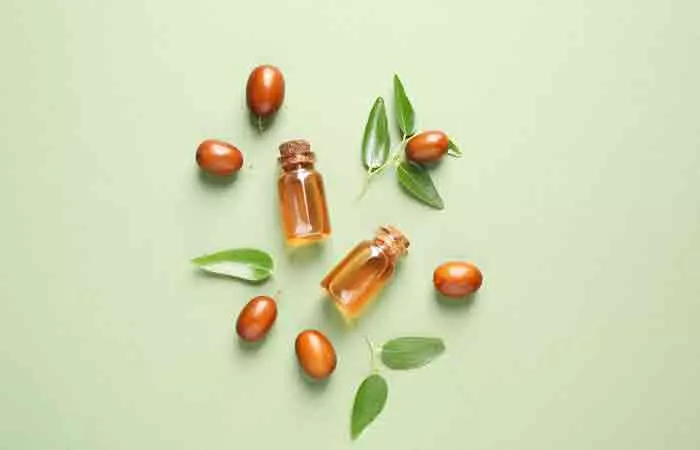
Even though it may sound counterintuitive, some beauticians may suggest the oil cleansing method for acne treatment. And, they are not wrong. An observational study conducted in 2012 discovered that clay jojoba oil masks can treat inflammatory and non-inflammatory acne (3). It also has a positive effect on clogged pores. Thus, cleansing with jojoba oil may help treat acne.
To gain the purported benefits of the oil cleansing method for acne-prone skin, you may try out any (or a combination) of the following oils:
- Jojoba oil
- Sunflower oil
- Safflower oil
- Hemp seed oil
However, stay away from any comedogenic oils, like coconut oil or soybean oil, as they can clog your pores and worsen your acne. Keep the same in mind while purchasing a store-bought oil cleanser for treating your acne-prone skin.
You can add a few drops of tea tree or neem oil to the base oil to clear out your skin faster. Some experts suggest the dilution of evening primrose oil for hormonal acne.
2. Oil Cleansing Method For Oily Skin
For oily skin, you can directly apply jojoba oil, grapeseed oil, or sweet almond oil as they will suit your skin type. However, there are more homemade cleansers for oily skin, such as water, olive oil, etc., that are very effective and bring good results.
For a luxurious experience, try the following combination:
- 3 teaspoons of castor oil
- 5 teaspoons of grapeseed, hemp seed, or safflower oil
- 2 teaspoons of argan or tamanu oil
- Few drops of tea tree, lavender, or neroli essential oil.
3. Oil Cleansing Method For Dry Skin
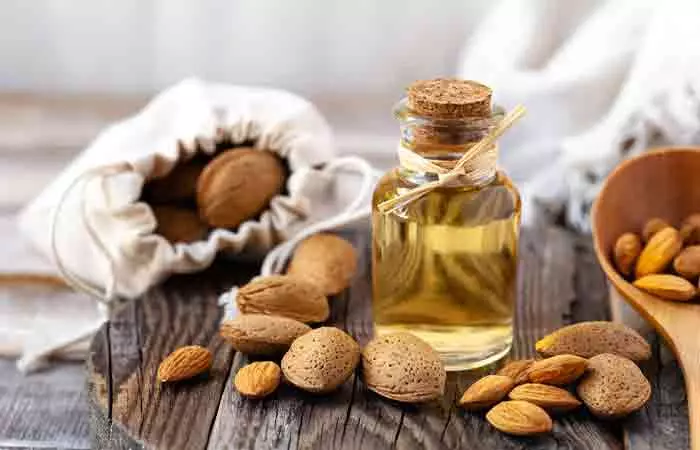
If you are dealing with skin dryness, hydrating oils can come to your rescue (4). Your skin can drink up oils like avocado oil, jojoba oil, and sweet almond oil to give you moisturized, radiant skin. A study conducted in South Korea established the potency of cleansing oils for countering skin dryness and aging (2).
To get successful oil cleansing results on dry skin, try the following blend:
- 8 teaspoons of avocado, sweet almond, rice bran, sunflower, or apricot kernel oil
- 2 teaspoons of argan or jojoba oil
- 1 teaspoon of castor oil (optional)
Combine the above ingredients to get your fix! You can even follow the above recipe if you have combination skin.
4. Oil Cleansing Method For Rosacea
Those planning to try the oil cleansing method for rosacea can create a blend by combining the following ingredients (5):
- 1 tablespoon of jojoba oil
- 1 tablespoon of rosehip seed oil
- 8 drops of helichrysum essential oil
- 4 drops of rose otto essential oil
- 400 IU of vitamin E (optional)
Note:
Consult your dermatologist before trying out the oil cleansing method for rosacea.
Read on to find out what you can expect post an oil cleansing treatment.
Oil Cleansing Method: Before And After
The oil cleansing method is said to give you soft and supple skin that is free from dirt, debris, dead skin cells, and makeup.
Unfortunately, the oil cleansing method has not undergone extensive research by the scientific community to capture the results in depth through facts, data, and figures. As of now, most success stories are purely anecdotal, and the results may vary from one person to another.
If you fail to see the results after a 3-4 of oil cleanses, try altering the oil cleanser recipe. If that also fails to deliver results, you can discontinue the technique entirely.
Below you can check out the before and after photos taken after just one session of oil cleansing.
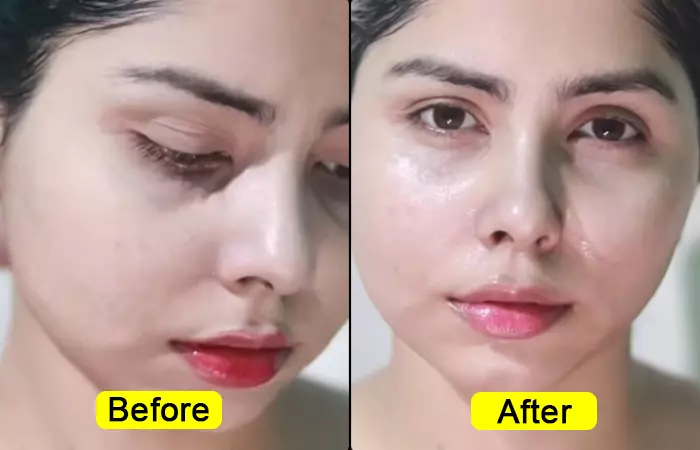
As you can see, the results are very subtle. Therefore, you may need to follow this method for a good few weeks to see any significant results.
In the following segment, we will discuss the pros and cons of the oil cleansing method.
Oil Cleansing: Pros And Cons
Before trying out this skin care technique, you may want to weigh the pros and cons. Check them out below:
Pros
- It makes use of safe and natural ingredients.
- You do not have to buy a string of skin care products as you can prepare oil cleansers at home.
- It is quick, simple, and affordable.
Cons
- The treatment takes a while to show results.
- It may cause your skin to break out in the initial stages.
- It has not been studied extensively and may not even prove to be effective for your skin type or condition.
- It can be messy.
Infographic: Oil Cleansing: How To Do It To Treat Different Skin Issues
The idea of applying oil to your face can sound quite unpleasant. The greasy feeling is not something that everyone wants to experience. However, did you know that undergoing that temporary inconvenience can give your skin the care it deserves? Whether you are dealing with acne or oily skin, or are fighting skin dryness, oil cleansing can be the solution you have been looking for. In the following infographic, we have mentioned how you can use certain oils to treat different skin issues. Check them out.

Illustration: StyleCraze Design Team
The oil cleansing method defies popular belief that cleaning entails lathering up with soap. The plant oils help dissolve the dirt and grime from the face making it easy to clean the face. However, keep in mind that there is no scientific evidence to support this method’s efficacy. To discover how they work, you can test out various natural oils that suit your skin type and condition for a few weeks. There is a “myth” that people with oily skin should not use oil cleansing methods. But, there is no scientific explanation for that. Talking with a dermatologist can give you clarity on that. However, if you are looking for other ways to get rid of oily skin, various prevention tips and home remedies are available. If you observe an increase in breakouts after oil cleansing for the next few weeks, you may need to cleanse lightly afterward, switch oils, or discontinue oil cleansing entirely.
Frequently Asked Questions
Do dermatologists recommend the oil cleansing method?
Yes. Dermatologists do recommend the oil cleansing method but not to everyone. It may not be suitable for oily skin.
Is oil cleansing better than face wash?
Some face washes may irritate the skin and cause excessive dryness. In such cases, oil cleansing is better than face wash as it is more hydrating.
Is micellar water an oil cleanser?
No, micellar water is a water-based cleanser.
Which is better – cleansing balm or oil?
Cleansing balm and oil are both effective cleansers. You may use both to double cleanse your face.
How long does it take to see results from oil cleansing?
It may take 2 weeks of regular use to see results from oil cleansing.
Learn how to cleanse your skin with the oil cleansing method! Get glowing, healthy skin in no time! Check out this video now.
Personal Experience: Source
StyleCraze's articles are interwoven with authentic personal narratives that provide depth and resonance to our content. Below are the sources of the personal accounts referenced in this article.
i. Thoughts on Oil Cleansing Method (OCM) After 4 years Of Daily Use — Long Read;https://medium.com/@fromnature.ca/thoughts-on-oil-cleansing-method-ocm-after-4-years-of-daily-use-long-read-8845f609cc01
References
Articles on StyleCraze are backed by verified information from peer-reviewed and academic research papers, reputed organizations, research institutions, and medical associations to ensure accuracy and relevance. Read our editorial policy to learn more.
- Anti-Inflammatory and Skin Barrier Repair Effects of Topical Application of Some Plant Oils
https://www.ncbi.nlm.nih.gov/pmc/articles/PMC5796020/ - A Study on Skin Conditions by Water-Soluble Cleansers
https://www.e-ajbc.org/journal/view.php?number=614 - Clay jojoba oil facial mask for lesioned skin and mild acne–results of a prospective, observational pilot study
https://pubmed.ncbi.nlm.nih.gov/22585103/ - The effectiveness of using a bath oil to reduce signs of dry skin: A randomized controlled pragmatic study
https://pubmed.ncbi.nlm.nih.gov/27815985/ - A Study on Skin Conditions by Water-Soluble Cleansers
https://www.e-ajbc.org/journal/view.php?number=614 - Commercial Essential Oils as Potential Antimicrobials to Treat Skin Diseases
https://www.ncbi.nlm.nih.gov/pmc/articles/PMC5435909/
Read full bio of Dr. Vindhya L Veerula
Read full bio of Arshiya Syeda
Read full bio of Ramona Sinha
Read full bio of Medha Deb







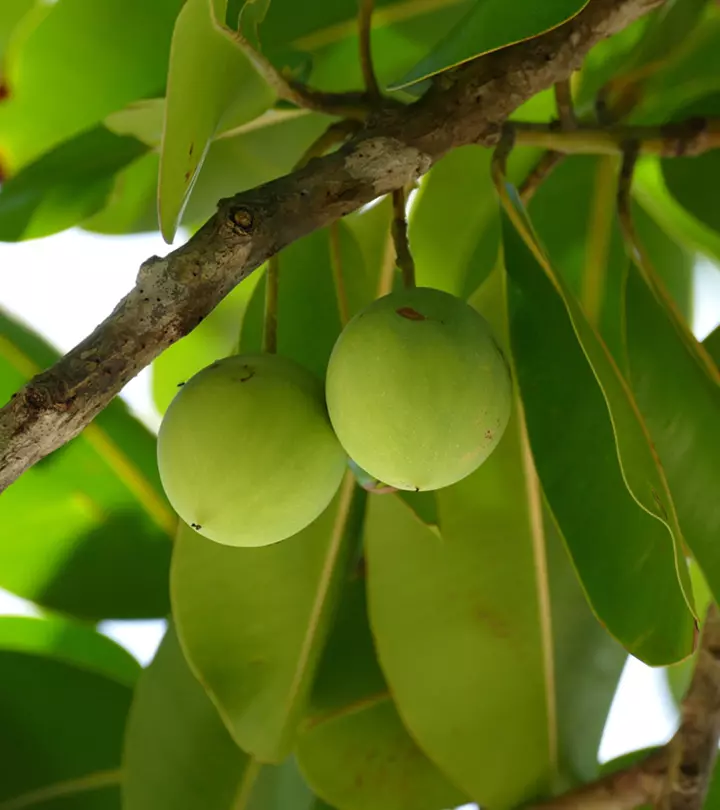


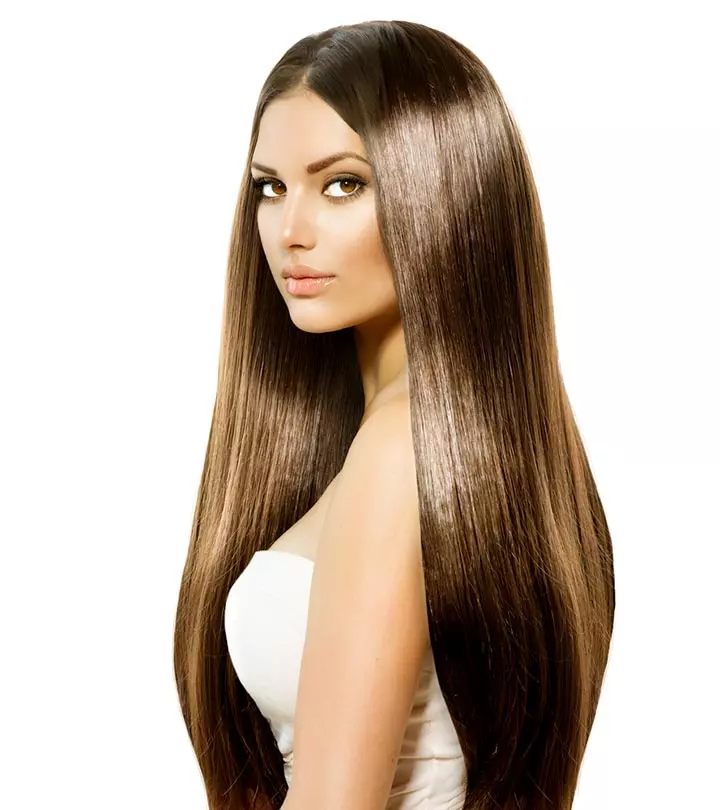
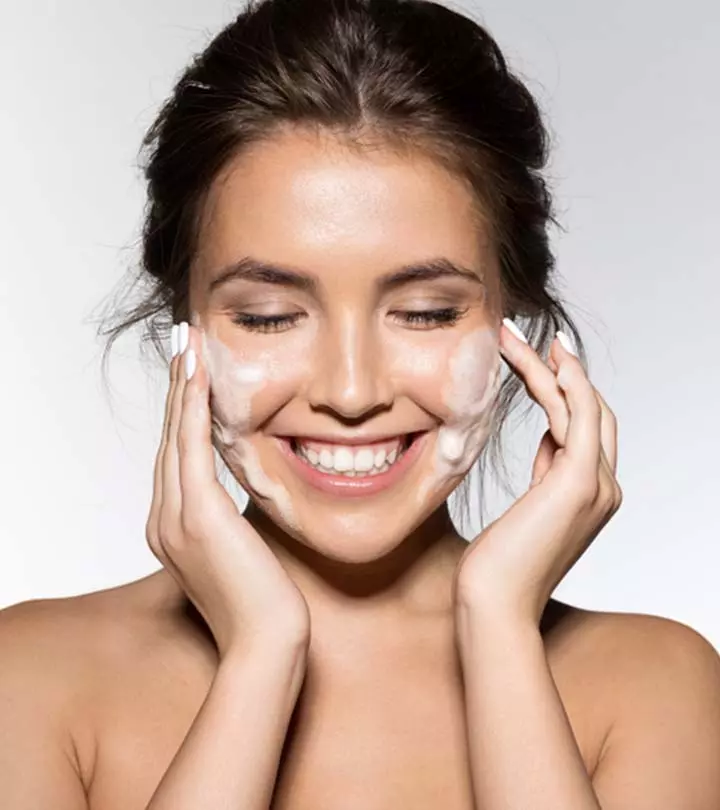



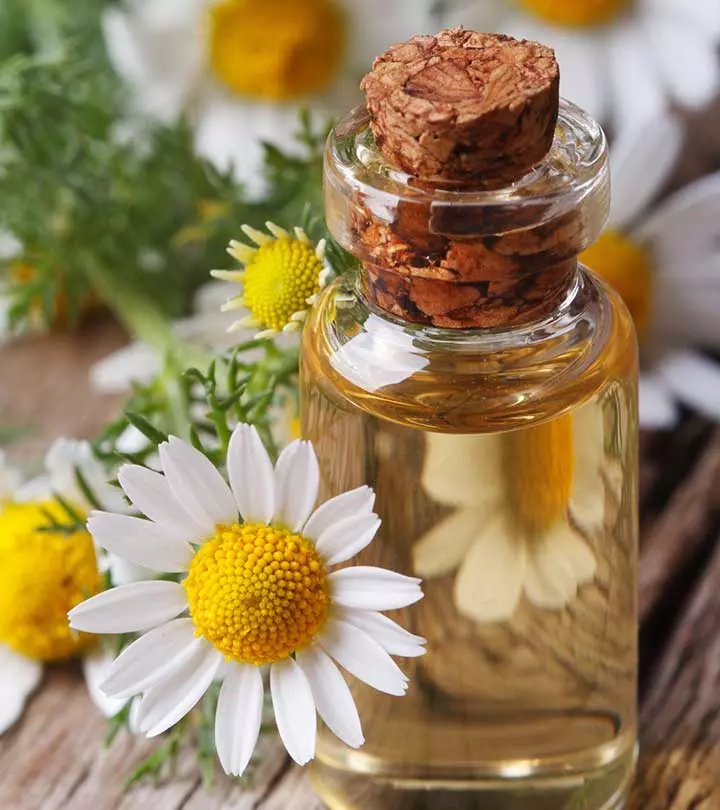
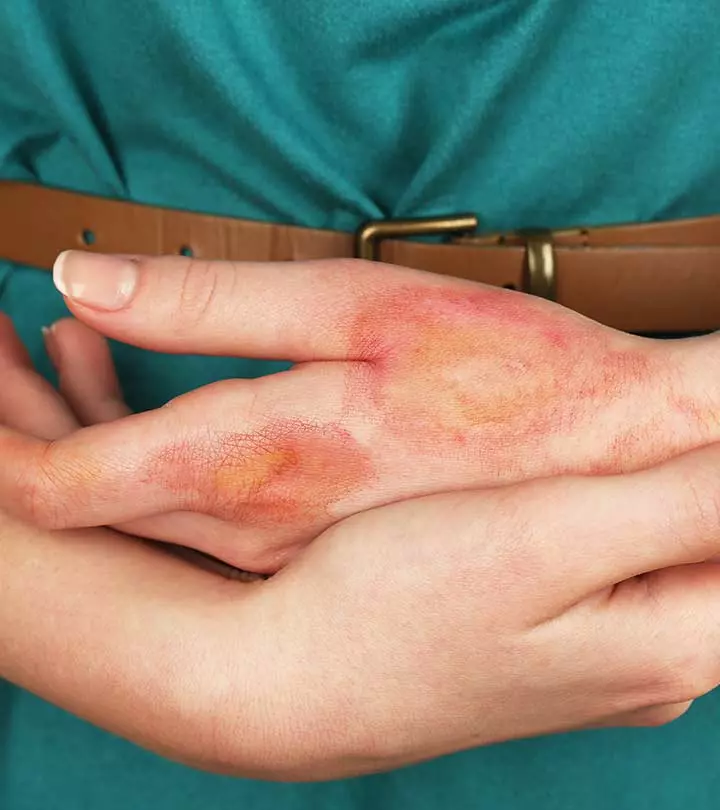
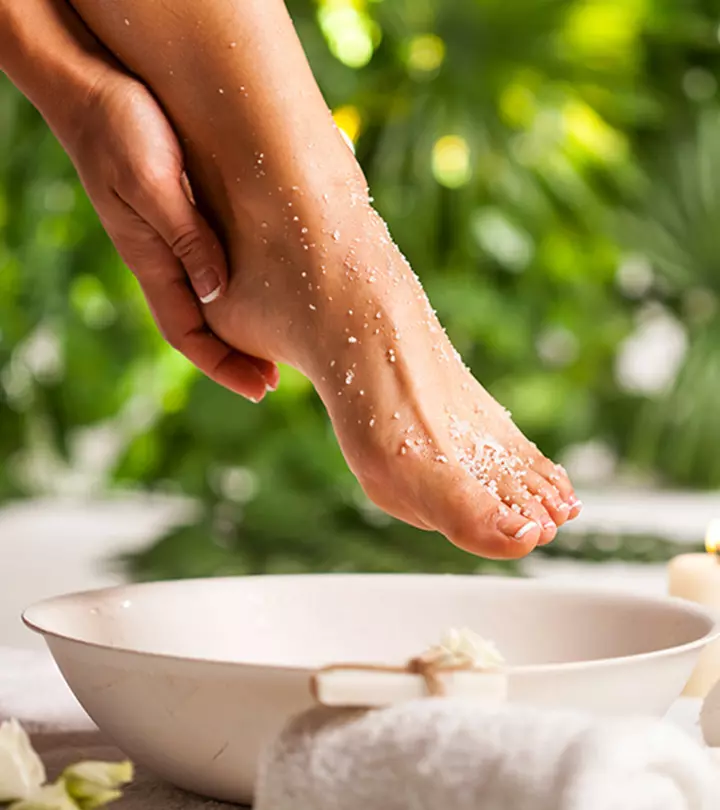
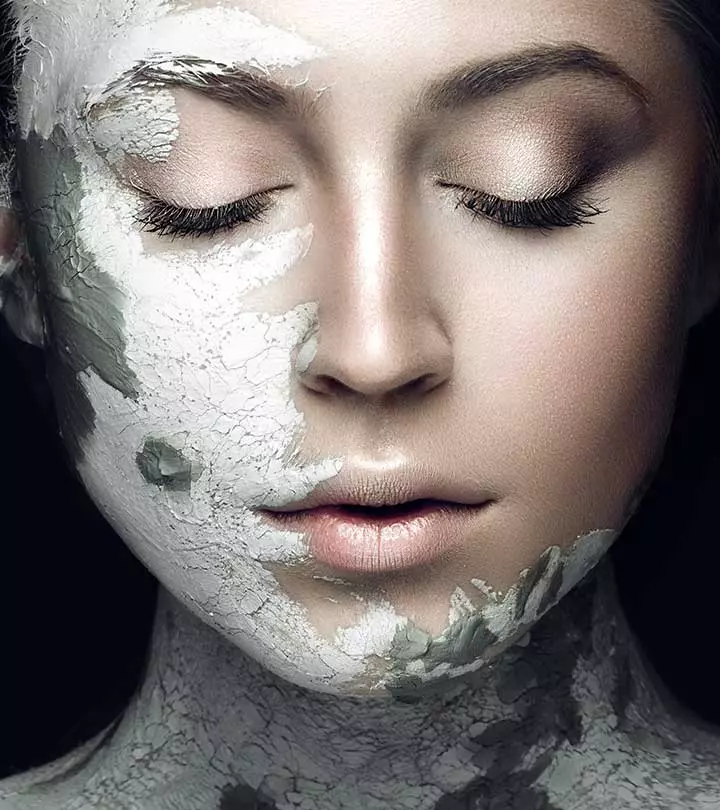

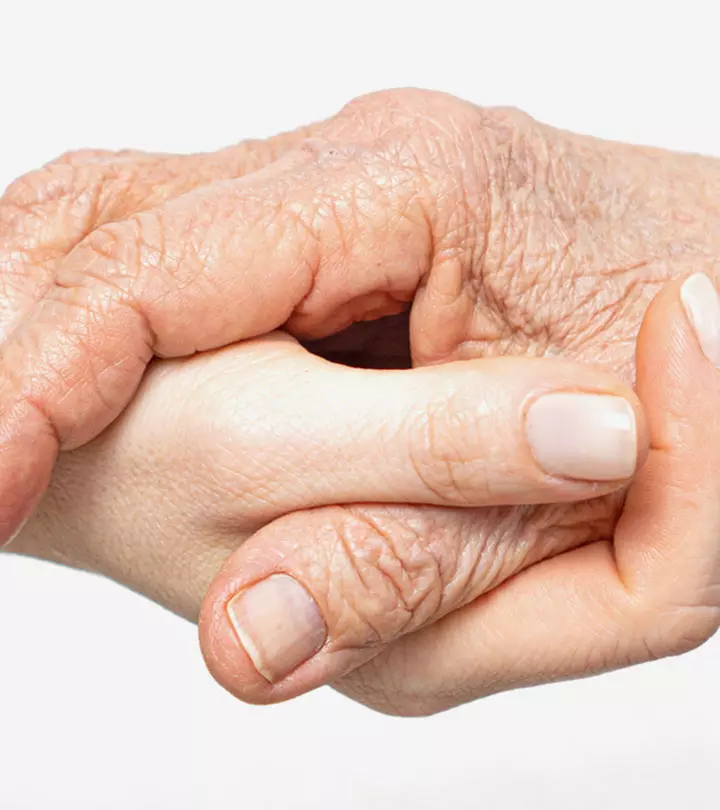

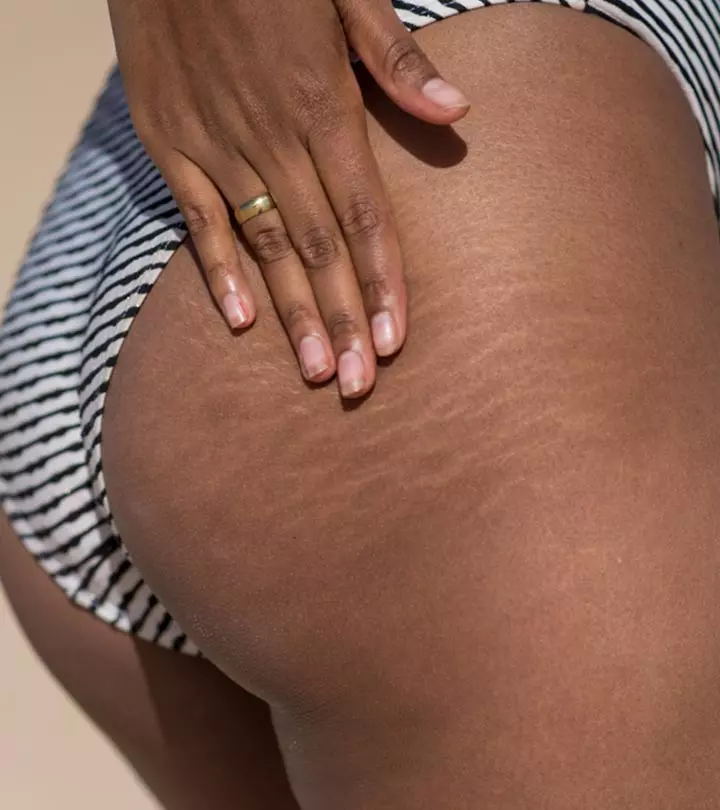

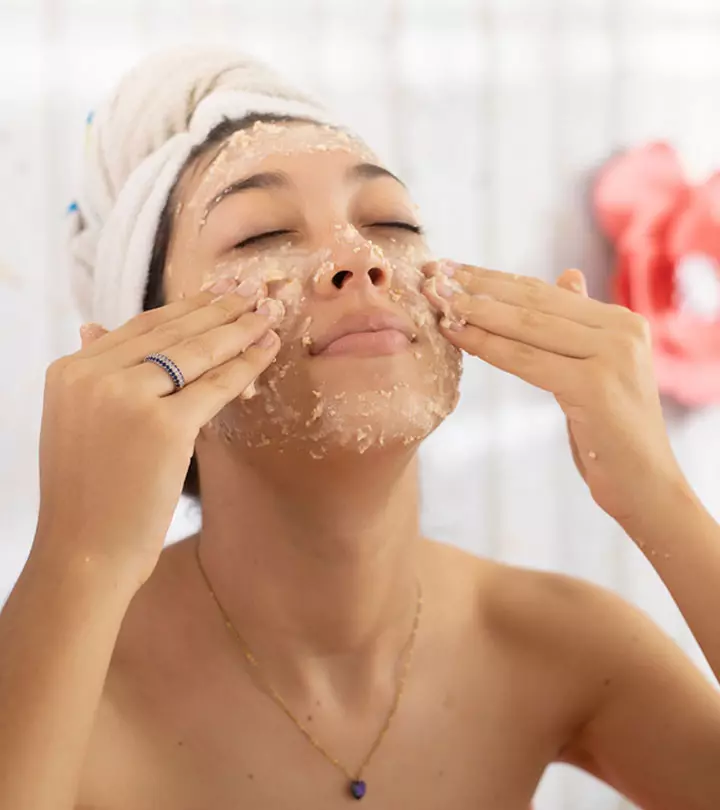
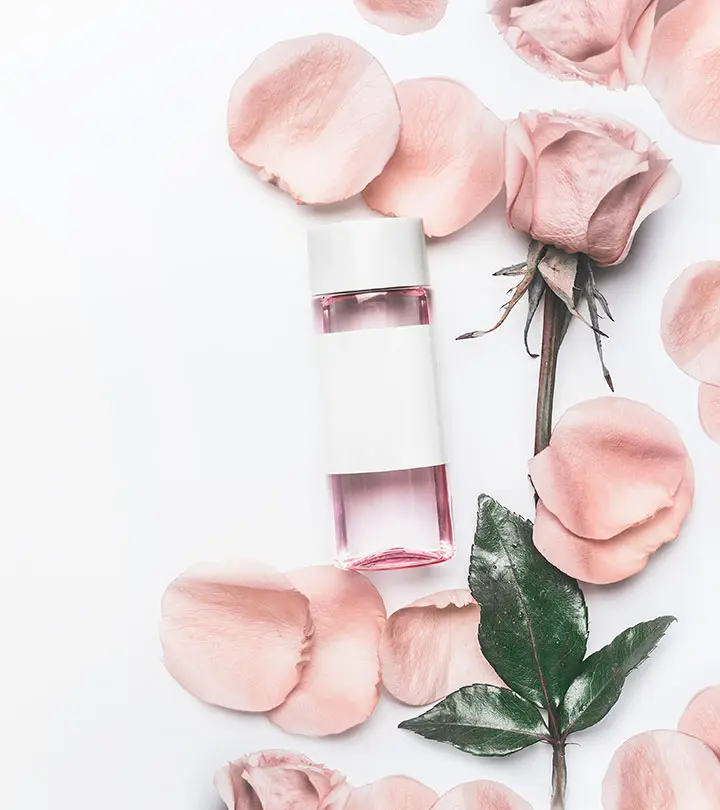
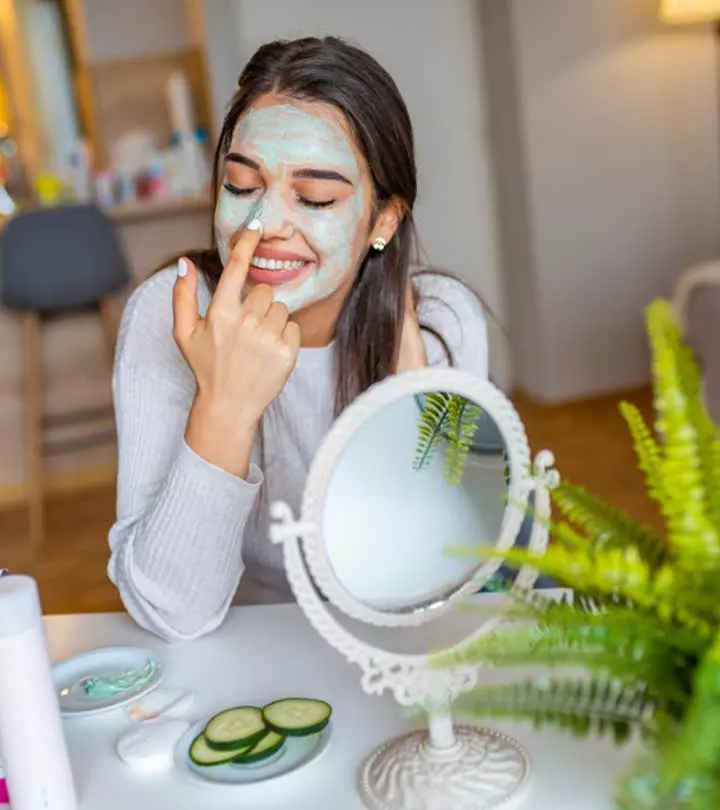

Community Experiences
Join the conversation and become a part of our empowering community! Share your stories, experiences, and insights to connect with other beauty, lifestyle, and health enthusiasts.